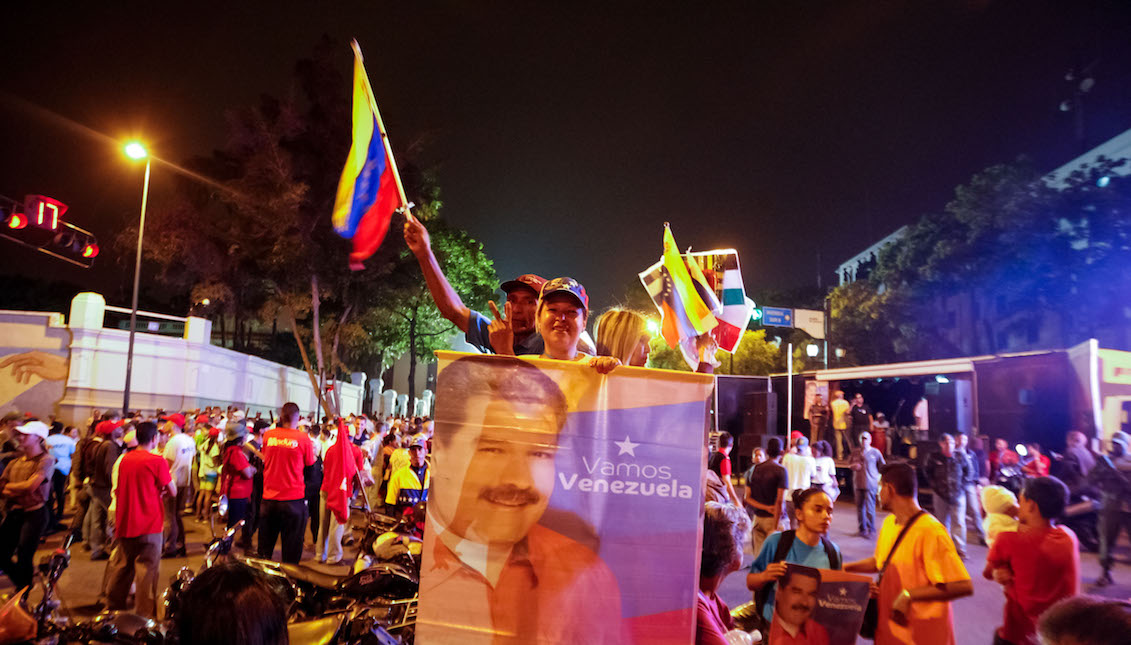
Amid crisis, Venezuela is a ghost country
The presidential elections in Venezuela are marked by a historical abstention and an international community that refuses to recognize the results. Meanwhile,…
On Sunday, Venezuela repeated the scenario that has set the tone to the detriment of its democracy: the holding of elections in a system distorted and undermined by corruption.
According to pollster Féliz Sijas, "the elections registered the lowest participation in more than two decades," with 1.7 million fewer votes than in the previous election in 2013, reported Reuters.
"Despite its low popularity and the severe crisis that the oil country suffers, Maduro, a 55-year-old former bus driver, comfortably prevailed against the less recognized rivals due to the absence of the main opposition figures in the elections, prohibition against some parties, and helped by the delivery of subsidized food and bonuses," Reuters explained.
Before the international denunciation of a critical situation within the country—where inflation, corruption, and an autocratic political system have plunged the population into a deep humanitarian crisis—Sunday's "elections" only perpetuate the model of contemporary dictatorship that happens simultaneously in countries like Russia and Cuba.
At the end of the 1990s, Venezuela was experiencing the decline of a bipartisan political tradition, undermined by inexperience, warlordism behind the scenes, and an oil wealth that surpassed the nation's infrastructure.
Having transformed into a deeply mono-productive economy, the difference of social classes was increasingly felt, and those who pined for the Cuban Revolution saw the perfect scene to seize power.
It was then when Hugo Chávez Frías was elected president during free elections on December 6, 1998.
With a new constitution under his belt, an enabling law, and an erratic divisive and anti-imperialist rhetoric, the new government managed to fracture the South American country into two irreconcilable factions.
Hugo Chávez Frías has been the Venezuelan president with the most popular support in history, and even an attempt to overthrow him on April 2002 gave way to his mythification and his transformation into a semi-divine character among the lowest cultural strata of the country.
Equating him with Simón Bolívar, Fidel Castro and with Che Guevara himself, the reuse of Latin American symbolic resources laid the foundations for a new revolution and a new hero.
Starting in 2005, Chávez began a series of reforms and regulations against private property, the media, and the main companies in the national territory.
Historical media such as Radio Caracas Televisión (RCTV) were forcibly closed, international companies such as Exxon Mobil and ConocoPhillips were expropriated, and Venezuela signed a cooperation agreement with Russia on natural gas and oil issues.
Although opposition to the government was battling regional elections, in February 2009 Chávez won a referendum and succeeded in abolishing the limits on the terms of office for the president, governors, mayors, and deputies to the National Assembly.
After the attempted overthrow of 2002, and as a consequence of the national oil strike, the heart of the Venezuelan economy—Petróleos de Venezuela (PDVSA)—was stripped of its experts and put in the hands of political adepts with little knowledge about the infrastructure.
Corruption, ignorance and government obtundation led to the deterioration of dams and refineries, and since 2010 the inability of the government to supply the country with water and contain the effects of floods was resolved through the decision of the National Assembly to grant special powers to the president.
RELATED CONTENT
After having won the elections again in November 2012 for a fourth term and with 54 percent of the vote, Chávez decided to continue his treatment against cancer in Cuba and die there, saying in advance that his successor should be Nicolás Maduro, urging his followers to vote for him.
The death of Chávez immortalized him in the figure of a martyr, which has been used by Nicolás Maduro and the Chavez leadership to cling to power through implicit corruption and the destruction of whatever democracy was left.
As of 2013, blackouts, a drop in oil prices and the terrible administration of the government detonated public demonstrations in the street, to which the government responded with repression, the imprisonment of opposition leader Leopoldo López, and the beginning of a witch hunt against dissident voices.
Once the opposition was made with the majority of the National Assembly, the government decided to devalue the currency and approve a constituent assembly while the violence in the streets disproportionately escalated.
According to figures from the International Organization for Migration, as of 2015, one in every 20 Venezuelans has decided to leave the country, equating to 1.6 million people. Likewise, the Venezuelan Observatory of Violence (OVV) has reported an increase in murders within the country boosted by the crisis and by the armed groups of the government, as well as the disappearance of the rule of law.
"Studies conducted by national universities show that four out of five Venezuelan households (82%) are in a situation of poverty and that more than half of families (52%) are in extreme poverty... That is, they fail to cover their basic food needs. Cáritas (humanitarian alliance) has reported that this year the number of children with acute malnutrition has increased by 14.5%, with many of them dying of hunger," according to the OVV.
In the same way, the gradual disappearance of the opposing forces and the fractures within it have left a people abandoned to their fate, even though the international community has announced that it will not recognize the results of the elections.
On Sunday, the United States reported that "it was studying new sanctions on the vital oil sector" and the so-called Grupo de Lima—14 countries that seek to find a way out of the crisis in Venezuela—"ignored the legitimacy of the elections," according to Reuters.
But between meetings, declarations, and criticism, the Venezuelan people remain plunged into poverty, without a political leadership to help them and without a way out from the ordeal founded by Hugo Chávez almost 20 years ago.










LEAVE A COMMENT: